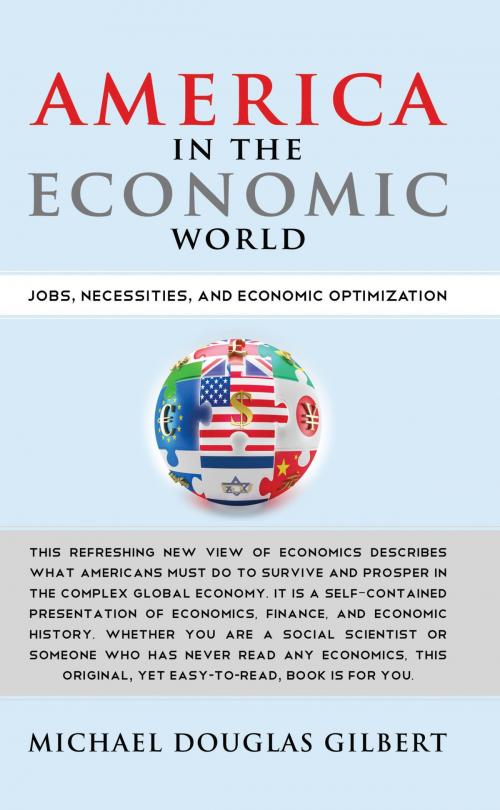America in the Economic World
Jobs, Necessities, and Economic Optimization
Nonfiction, Social & Cultural Studies, Political Science, Politics, Economic Policy, Business & Finance, Economics, Economic History, Finance & Investing, Finance| Author: | Michael Douglas Gilbert | ISBN: | 9781626527720 |
| Publisher: | Langdon Street Press | Publication: | July 15, 2014 |
| Imprint: | Language: | English |
| Author: | Michael Douglas Gilbert |
| ISBN: | 9781626527720 |
| Publisher: | Langdon Street Press |
| Publication: | July 15, 2014 |
| Imprint: | |
| Language: | English |
America in the Economic World recognizes that necessities and jobs are the natural starting point for the study of economics. That leads to a review of how nations survive in the global economy, followed by a primer of basic concepts in economics and finance, and a study of American economic history. Author Michael Douglas Gilbert provides readers with the information needed to make their own decisions. Americans no longer have to rely on political grandstanding and over simplification. America in the Economic World warns of the excessive influence of ideology on public policy and discusses how the nation can overcome it. Even economists will appreciate the refreshing new approach to traditional topics including jobs, necessities, deferred necessities, Medicare, social security, welfare, the Federal Reserve System, and the causes of the Great Recession. A surprising chapter on warfare since 1941 provides insight into the impact of ideology on major policy decisions.
America in the Economic World recognizes that necessities and jobs are the natural starting point for the study of economics. That leads to a review of how nations survive in the global economy, followed by a primer of basic concepts in economics and finance, and a study of American economic history. Author Michael Douglas Gilbert provides readers with the information needed to make their own decisions. Americans no longer have to rely on political grandstanding and over simplification. America in the Economic World warns of the excessive influence of ideology on public policy and discusses how the nation can overcome it. Even economists will appreciate the refreshing new approach to traditional topics including jobs, necessities, deferred necessities, Medicare, social security, welfare, the Federal Reserve System, and the causes of the Great Recession. A surprising chapter on warfare since 1941 provides insight into the impact of ideology on major policy decisions.















